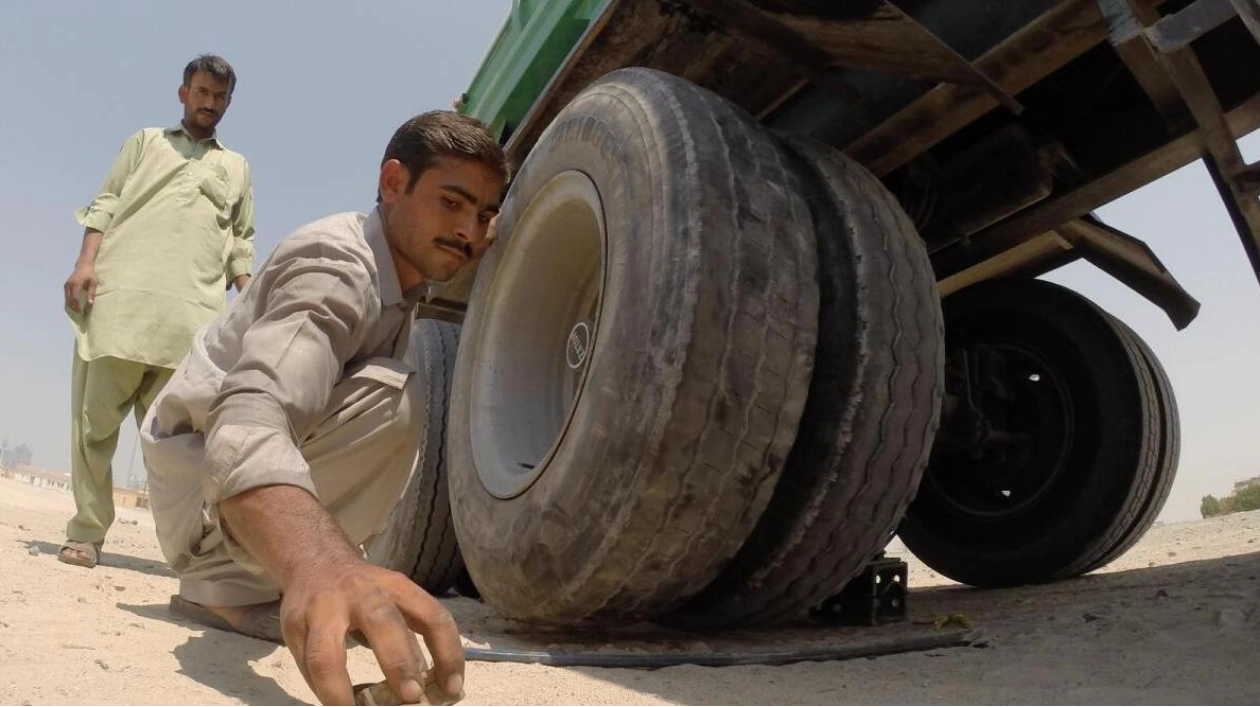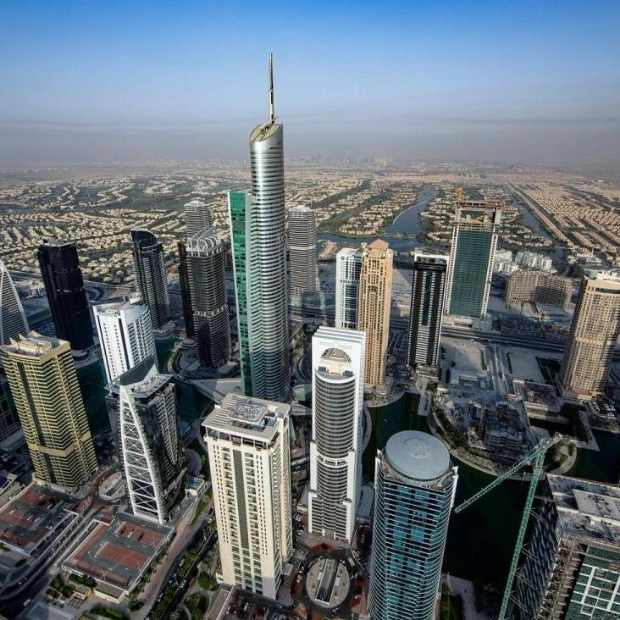This summer, with temperatures exceeding 50 degrees Celsius, flat tyres and blowouts have become frequent occurrences on roads, as reported by motorists to Khaleej Times. Mohammed Akrami, a businessman in Deira, was astonished to witness nearly 20 drivers changing their tyres on the roadside over the past three days. "During a single trip, I observed at least four cars parked on the side of the road due to flat tyres," he recounted. Cameroonian driver Robert Ndongo was one of those who recently had to repair a tyre while on his way to deliver a corporate order. "I was driving at 80kmph on the Sheikh Mohammed Bin Zayed Road when I suddenly felt a jolt," he explained. "Recognising a problem, I gripped the steering wheel firmly and cautiously moved to a safe location." It was a flat tyre, and he had to spend an hour changing it before he could resume his delivery. Experts attribute the summer heat as one of the factors that make tyres susceptible to blowouts. High temperatures cause the air inside tyres to expand, leading to over-inflation. "This increased pressure can strain the tyre walls, making them more prone to blowouts," explained Mohammed Shareef, an automobile expert at NXT Cars. Over-inflated tyres are particularly vulnerable as the excessive pressure can cause weak spots to fail. Hot pavement can also soften tyre rubber, making it more prone to punctures and damage from sharp objects. Repeated heating and cooling cycles weaken the tyre structure over time, increasing the likelihood of failures. Prolonged exposure to high temperatures can "dehydrate" the rubber in tyres, diminishing its elasticity. "Dehydration in tyres makes them more prone to cracks and splits. Heat accelerates the oxidation process, degrading the rubber and reducing the overall lifespan of tyres," said Basheer Padathakayi, an automobile expert at Perfect Radiator Cooling System in Abu Dhabi. Besides external temperatures, factors like under-inflation and tyre age can also lead to blowouts. "Under-inflated tyres wear out more quickly, making them more likely to go flat, especially under the stress of high temperatures," Padathakayi noted, who frequently shares valuable vehicle safety tips on social media. Older tyres, with weakened structures and less resilient rubber, are more prone to failure in extreme heat. Lack of regular maintenance, such as checking tyre pressure and rotating tyres, also contributes to tyre degradation and increases the risk of flat tyres. In Dubai and Abu Dhabi, tyres should not be more than two years old. "Vehicles equipped with tyres older than two years will not be registered," he added. To reduce the risk of tyre blowouts during the summer months, experts suggest the following precautions: Ensure tyres are inflated to the manufacturer’s recommended levels, especially during hot weather. Look for signs of wear, cracks, or punctures and address issues promptly. Regular maintenance of wheel alignment helps ensure even wear and extends tyre life. Do not exceed the weight capacity of your vehicle to prevent additional strain on tyres. Park in shaded areas or on cooler surfaces to minimize exposure to extreme heat. Use high-quality and branded tyres. It is advisable to change tyres after 50,000km.

Text: Lara Palmer
10.07.2024
High temperatures and under-inflation contribute to tyre failures, experts warn





